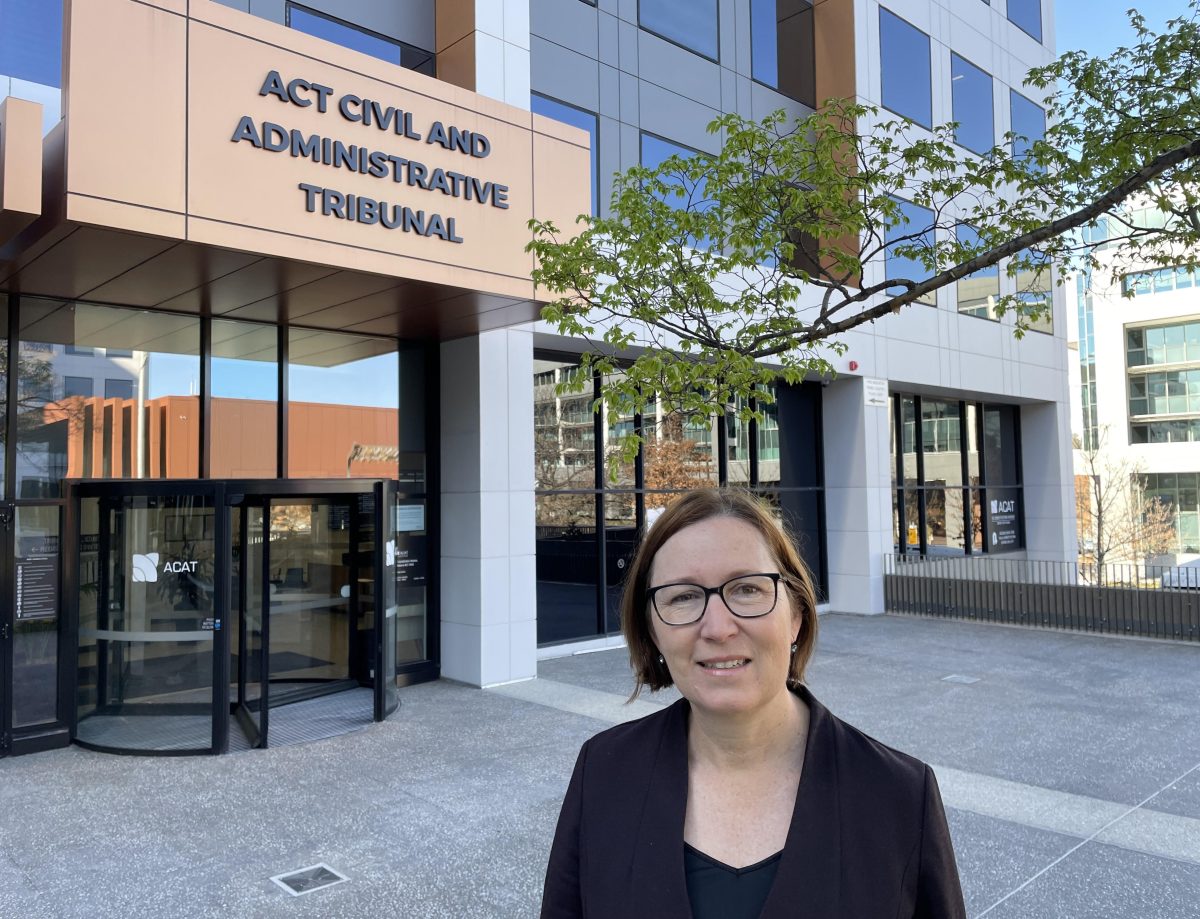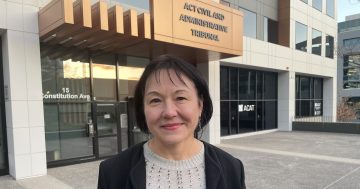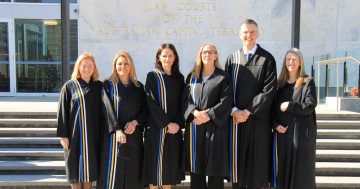
Incoming ACAT President Mary-Therese Daniel has a long history in Canberra. Photo: Supplied.
The ACT Civil and Administrative Tribunal (ACAT) has a new president whose entire legal career has spanned several aspects of Canberra’s legal system.
Mary-Therese Daniel will begin her seven-year stint as president on Monday (18 September) and succeeds the late Graeme Neate AM, who had served since January 2017 until his death earlier this year.
Ms Daniel graduated from the Australian National University and spent her first years in law in the Family Court of Australia under Her Honour Mary Finn.
She said this is where her passion for court-delivered services began.
“This is where I saw how law can impact on people’s lives, and how administrative services in court can have a profound impact,” Ms Daniels said.
“[ACAT] is a very satisfying place for me to be.”
Ms Daniel has also previously worked with national firm MinterEllison, Legal Aid ACT, the ACT Office of the Director of Public Prosecutions and the ACT Government Solicitor, where she finished up as a principal solicitor.
She was appointed as ACAT’s first full-time non-presidential member in 2012 and promoted to presidential member in 2015. Ms Daniel has also previously served as temporary president in 2021.
She explained the less formal environment of the tribunal compared to the court process suited her, striving to ensure legal processes were “informal, efficient and inexpensive” for people seeking justice.
“[We want to provide] as much of that as we can that can also mean a person receives a fair hearing and a fair result,” Ms Daniel said.
“I’m committed to promoting public trust and confidence in the tribunal and its conduct of proceedings by ensuring we provide simple, inexpensive, accessible and fair resolution of disputes.
“We are designed for people to be able to come off the street and tell us their story, and then we can either sort it out for them or help them to sort it out.”
Ms Daniel has no set agenda or timeline when she steps into her new role, but has a desire to continue improving access to justice in an increasingly digital world.
ACAT recently moved premises where hearings are just as easily held over the phone or computer as they would be in person, and she felt the next step was extending those capabilities into information management.
Ms Daniel explained filing of documents was still much the same as how things had been done “since the 1900s” and so she wanted to update that aspect of the tribunal.
“We need to look at how to provide a way for parties to get their preparatory documents and lodge them in a way that doesn’t require three copies of everything – one for themselves, one for the other side and one for us,” she said.
“The challenge will be taking advantage of the digital savviness of the younger generations and getting that efficiency … while also still being accessible to people who don’t have the technology or who don’t want to use it.
“I believe that is already happening.”
Ms Daniel’s appointment comes following a competitive selection process, with presidential member Geoffrey McCarthy serving as temporary president in the interim.
Attorney-General Shane Rattenbury said she had proven her “strong commitment” to the aims and objectives of ACAT through her “energetic and resourceful approach” to her previous roles with the tribunal.
“Ms Daniel will ably lead the management of the tribunal as it prepares for its digital future,” he said.
“I look forward to seeing ACAT continue to evolve under her leadership as it serves our growing community in resolving disputes and achieving justice.”

















